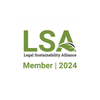Genome editing (GE) allows genetic material to be added, removed or altered at particular locations in an organism’s genome. New Breeding Techniques (NBTs) such as CRISPR (Clustered Regularly Interspaced Short Palindromic Repeats) gene editing technology, allow genomes to be edited in vivo easily and cheaply, with extremely high precision and have, as a consequence, been headline news in recent years.
Genetically modified organisms (GMOs) are organisms whose genetic material has been altered using a genetic engineering technique. In the UK, regulation of genetically modified organisms continues to be governed under retained EU law, which is generally seen as providing amongst the most restrictive GMO regulations in the world. EU law sets out that all genetically-engineered organisms are classified as GMOs irrespective of the technique used for their production and each GMO must be assessed on a case-by-case basis before it can be authorised for release into the environment. Consequently, all NBTs based on targeted editing of genes currently fall under the same rules that apply to GMOs that incorporate genetic material from a different species.
The United Kingdom government has recently launched a consultation, seeking comments as to whether organisms produced by genome editing or by other genetic techniques should continue to be regulated as GMOs if they (the organism) could have been produced by traditional breeding methods. Since the GMO regulations are considered an environmental protection matter, this area of the law is a devolved matter for the four countries of the UK. Accordingly, the UK government is consulting only on whether to change the law for England.
The government’s view is that organisms produced by genome editing or other genetic technologies but which could have been produced by traditional breeding methods should not be regulated as GMOs. The government explains that some other countries, such as Argentina, Australia, Brazil and Japan take a different regulatory approach to GE organisms from the approach adopted for GMOs.
GE and other techniques can, of course, also be used to add, remove or alter genetic material to produce organisms which would not result from traditional breeding methods. At present, the government is considering changing the law only in respect of organisms which could have been produced by traditional breeding methods and expressly does not apply to organisms which introduce genetic material from other species. However, it is also consulting on genome editing more generally, for the purposes of informing future policy development.
There is bound to be a range of views in response to the consultation and at least one interested group has already published its submissions online[1]. Other associations have been consulting their members[2][3]. It will be interesting to see how the devolved administrations respond to any change in England and whether they follow England’s approach or prefer to maintain alignment with current EU legislation.
The outcome of the consultation is likely to have significant implications for the agricultural sector. Gene editing can quickly bring about changes in plants or animals that would otherwise take significantly longer to realise using traditional selective breeding. Such changes could, for example, provide crops with enhanced nutritional properties or crops that are less dependent on pesticides. By removing the barriers imposed by a GMO designation, development of enhanced crops is likely to progress at a much faster rate. However, concerns have been raised around the environmental impact of gene edited crops as well as the potential impact a change in farming practices could have on animal health.
Whatever the outcome of the consultation, modern genetic engineering techniques have given rise to many new inventions associated with the development of new plants and the regulatory framework which goes hand-in-hand with this development plays an important role in the commercial desirability of seeking to protect such inventions.
Since the UK government consultation was announced, France has also suggested support for non-GMO regulation of crop gene-editing. Agricultural minister Julien Denormandie considers that NBTs are not GMOs; he has commented that NBT technology allows much quicker development of a crop variety that could have emerged naturally.
It should be noted that the EU is also reviewing its position. In 2019, the European Council requested the European Commission to submit a study regarding the status of novel genomic techniques under Union law. The study is due to report by 30 April 2021[4].
The UK government’s consultation and its supporting documents can be viewed on the UK government website, which also includes a link to the online survey and is open for responses until Wednesday 17 March 2021 at 23:59.





















